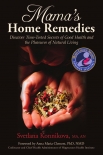Libertie by Kaitlyn Greenidge (best short novels .txt) 📗

- Author: Kaitlyn Greenidge
Book online «Libertie by Kaitlyn Greenidge (best short novels .txt) 📗». Author Kaitlyn Greenidge
“One of the girls said the white people went around and marked every colored person’s home in Manhattan,” Miss Annie said. “With red chalk, they marked it. They marked the homes of our white friends, too. So they knew who to burn.” As she spoke, she fanned herself with her hand in quick, sharp strokes, trying to shift the weight of humidity with the palm of a hand.
“What terrors,” Miss Dinah said. “Can you imagine? I mean, can you imagine, your very own neighbor marking your house to attack? Can you imagine all those people you pass in the street every day, planning for your demise?” Miss Dinah leaned forward and said, in a gruff, low voice that I suppose was meant to be that of a terror, “Mark ’em all and burn ’em down.” I’d heard Miss Dinah try on this voice before, at church meetings when she was describing certain devils, and it had always raised a laugh. But not now. The accent only curdled in the hot air.
“Surely, the governor can stop it,” Miss Clara said uncertainly. “He’ll send troops to make it stop.”
Mama looked at Miss Clara, with her high, smooth neck and clear brown skin. “You understand less than I thought you did if you think he’d lift a finger.”
Miss Clara blinked, and her cheeks darkened.
“One of the men says”—Miss Annie leaned forward, eager to stop the sadness and share what she knew—“the mayor begged the governor for help, but the governor plans to come and cheer the rioters on.”
“He’d do it,” Mama murmured.
“How can you be so hopeless?” Miss Clara said.
Miss Annie sat back in her chair again. “It is not being hopeless. We have to plan for the worst of what white folks do. Because they always choose the worst. They do what they do, and—”
“We do what we can,” Mama said. She took a sip of water from her tin cup.
“I hope the governor burns,” I said, from my seat at the corner.
I had thought Mama would nod in agreement. Some of the other women did. I saw Miss Clara and Miss Annie smile when I said it. But Mama looked at me sharply. “It’s a sin to wish such a thing on another person,” she said. “Even on him.”
I thought of the woman under the water, who I was sure had the vengeance in her to do something horrible like that, and I directed my thoughts to her. Burn him up. Drowning’s too good for him.
Mama stood up. “To work,” she said. Even then, our household had more than the households of the other women—more jars of preserves, more salt pork, more cloth, more firewood. And so we spent the afternoon taking stock of the pantry and of the root cellar, dividing what we had to feed everyone, which household should take from the extra barrel of salted cod and which needed more blankets.
We did not know it then, but this is how we would spend the rest of the war. All of us in that room there became a sisterhood. We called ourselves the Ladies’ Intelligence Society—it had started as a kind of joke, when the few men in town asked the women where they were going, why they spent so much time at Dr. Sampson’s house. I was a mascot of sorts—the doctor’s girl, who was always in the room.
We were hell-bent on plotting. How could we get information from Kings County to Ohio, to Maryland, to Virginia, to the West, about the children left in the destroyed orphanage? How could we find their parents? It was from hours of those meetings that we found the father of the baby I’d carried off the boat, got word to him, were able to send her to relatives in Massachusetts. She was no longer in my arms, but I could still feel the weight of her there, pressing. Whenever I did, I’d fold my arms over my chest and pray again, to the woman in the water. Keep her safe. Keep them safe. Keep us safe.
“After the war” became everyone’s refrain. We read of men dying every day, even as a few of those made their way off the battlefield, their eyes wide with horror. Whenever the war ended, if it ended, whoever won, we knew there would be colored people in need of aid. And what could we do, from the safety and comfort of our town that the whites had overlooked? What would help them best?
“A school,” Miss Annie said. The women all nodded; that was a given. “Homes,” Miss Dinah added. But it was Mama who cleared her throat and said, “A hospital.” She looked around the room. “For colored people,” she said. “We cannot live in freedom if we are not well.”
There was a moment of silence as the women turned the idea around, and Mama, very carefully would not look at Miss Hannah, who was crying now. But Miss Annie, Miss Clara, and Miss Dinah nodded, and it was decided then that this was what their efforts would go toward. A hospital, for whoever made it out alive, to become whole again.
It was hard planning, oftentimes hours of talking with no clear answers. But when the women got going, the whole room began to vibrate. Sometimes, it seemed that the white walls themselves flushed when the women raised their voices. How strange it was to sit around them, at their feet or in the corner, and hear them shout, these same women who all week long told me and the other colored girls in town to speak softly, to keep our heads down and our backs straight, to





Comments (0)